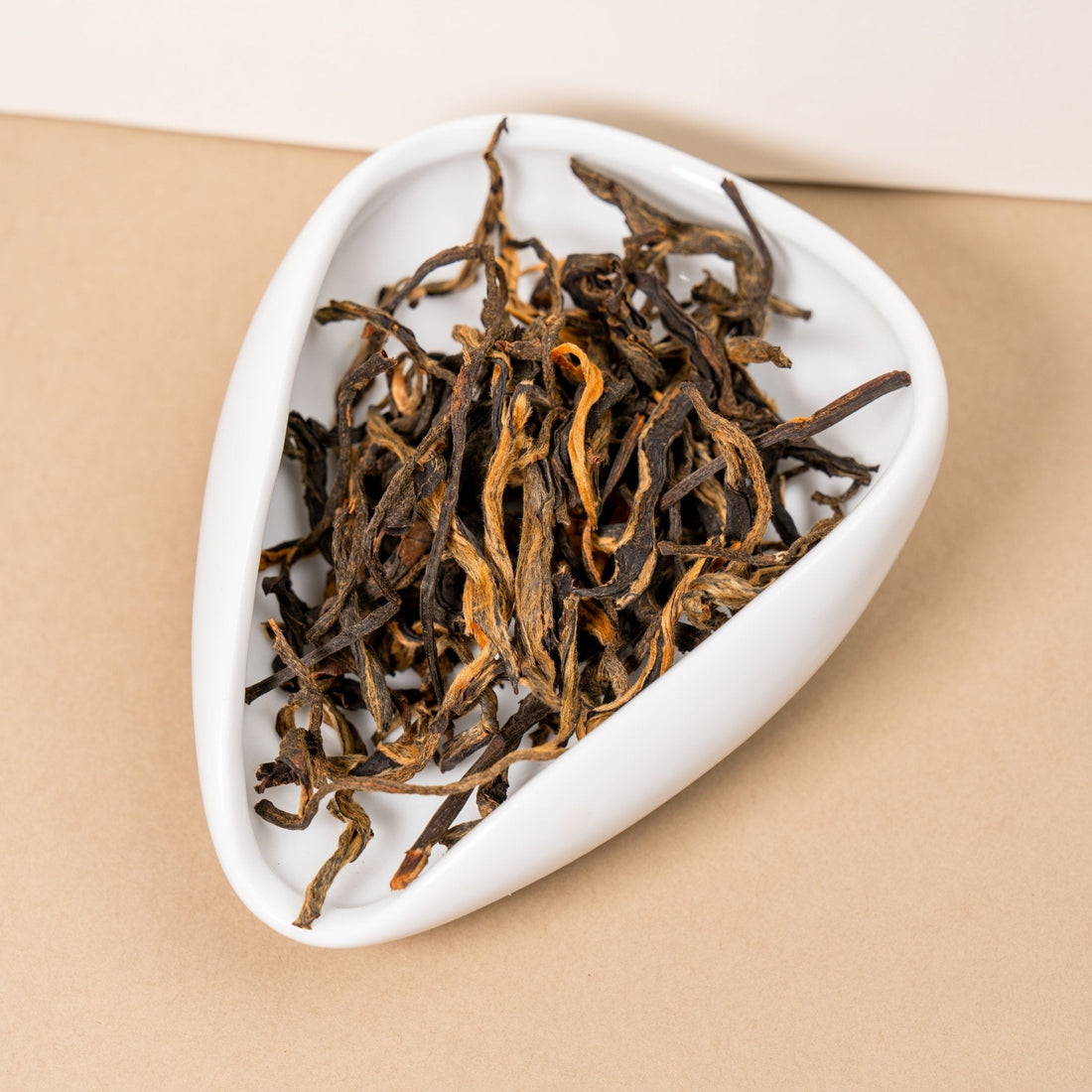
Black Tea Benefits: Why Chinese Black Tea from CrimYun Elevates Your Wellness Routine
From morning breakfast tables in London to tea houses in Chengdu, black tea has earned its place as a global favorite. Beyond its rich, robust flavor, this fully oxidized tea is brimming with compounds that support overall health. As purveyors of premium Chinese black tea, CrimYun invites you to explore the science-backed perks of this beloved beverage—and why our artisanal blends stand out in delivering these advantages.
Key Takeaways:
1. Black tea’s unique antioxidants, called theaflavins and thearubigins, come from its oxidation process and play a big role in supporting heart health.
2. Drinking black tea daily is linked to better cardiovascular function, one of its most well-documented pluses.
3. The moderate caffeine in black tea, paired with L-theanine, boosts focus without jitters—perfect for busy days.
4. It also supports digestion and gut health, thanks to prebiotic compounds that nourish beneficial gut bacteria.
1. Supporting Heart Health: A Standout Perk of Black Tea
Black tea’s distinct oxidation process creates antioxidants called theaflavins and thearubigins, which are key to one of its most notable benefits: keeping your heart healthy. A meta-analysis published in the American Journal of Clinical Nutrition found that regular black tea consumption was associated with a 10-20% lower risk of heart disease over 10 years¹. Another study in the European Journal of Preventive Cardiology noted that drinking 3 cups daily could reduce systolic blood pressure by 2-3 mmHg, adding to why this is such a valued aspect of black tea².
CrimYun black teas, crafted using traditional Chinese methods like slow rolling and controlled oxidation, retain higher levels of these heart-protective antioxidants. Our Dianhong (Yunnan black tea), grown in high-altitude mountains, delivers a concentrated dose of theaflavins to maximize this benefit.
2. Steady Energy: A Daily Bonus of Black Tea
Unlike the abrupt energy spike from coffee, black tea’s caffeine (paired with L-theanine) provides steady alertness—another reason it’s a daily favorite. A randomized controlled trial in Psychopharmacology found that this combination improves attention span and mental clarity for up to 6 hours³. The moderate caffeine content (about 40-60mg per cup) avoids the “crash” associated with stronger stimulants, making it ideal for daily routines.
For productive workdays or study sessions, CrimYun black tea shines here. Its smooth, malty flavor balances caffeine and L-theanine, keeping you focused without restlessness.
3. Gut Health: An Overlooked Advantage of Black Tea
Black tea contains compounds that act as prebiotics, nourishing the beneficial bacteria in your gut—an often underappreciated plus. A 2022 in vitro study in Food Research International showed that black tea extracts increased the growth of Lactobacillus and Bifidobacterium—key microbes for digestive health⁴. This can reduce bloating and support nutrient absorption, making it a valuable part of a balanced diet.
CrimYun (a premium black tea) is fermented with care to preserve this benefit. Sipping a cup after meals can ease digestion while delighting your taste buds.
4. Blood Sugar Support: A Growing Reason to Enjoy Black Tea
Emerging research suggests black tea could support glycemic control—an increasingly recognized upside. A meta-analysis in Nutrition Reviews found that regular consumption was linked to a 15% lower risk of type 2 diabetes⁵. The polyphenols in black tea may improve insulin sensitivity, helping regulate blood sugar spikes.
CrimYun black teas, like our 5-year fermented Pu’er (a type of dark tea), are particularly noted for enhancing this benefit. Their matured compounds boost metabolic support.
How to Get the Most from Black Tea
To enjoy its full potential, follow these tips:
5. Brew properly: Use water at 85-90°C (185-194°F), with a tea-to-water ratio of 3g tea leaves to 120ml water, and steep for 5-10 seconds. CrimYun’s loose-leaf teas release more nutrients than tea bags—strain after steeping to get the most out of each cup.
6. Consume mindfully: 2-3 cups daily is optimal. CrimYun’s portioned tea tins make it easy to track your intake.
7. Pair wisely: Avoid adding excessive sugar, which can counteract its benefits. Try CrimYun black tea with a splash of milk or honey for a balanced taste.
Why CrimYun Enhances Black Tea’s Best Qualities
China’s black tea heritage spans centuries, and CrimYun honors this tradition with meticulous craftsmanship to bring out its best. Our teas are harvested from organic tea gardens in Fujian, Yunnan, and other famous tea provinces, where fertile soils and ideal climates yield leaves rich in the compounds that make black tea so beneficial—from theaflavins to L-theanine. Each batch is tested for purity, ensuring you get the highest concentration of these helpful compounds.
Ready to experience all that black tea has to offer? Explore CrimYun’s collection, from bold Keemun to silky Dianhong, and elevate your daily wellness routine with every sip.
P.S. Subscribe to our newsletter for exclusive recipes and brewing tips to make the most of your CrimYun black tea!
Reference List
1. Zhang, Y., et al. (2019). Black tea consumption and risk of coronary heart disease: a meta-analysis of prospective cohort studies. American Journal of Clinical Nutrition, 110(4), 901-908.
2. DOI: 10.1093/ajcn/nqz124
1. Guo, X., et al. (2020). Tea consumption and the risk of cardiovascular disease and all-cause mortality: a cohort study of 100,902 Chinese adults. European Journal of Preventive Cardiology, 27(12), 1278-1286.
2. DOI: 10.1177/2047487320927858
1. Haskell, C. F., et al. (2008). The effects of L-theanine, caffeine and their combination on cognition and mood. Psychopharmacology, 199(4), 451-468.
2. DOI: 10.1007/s00213-008-1313-0
1. Wang, L., et al. (2022). Prebiotic effects of black tea polyphenols on gut microbiota: An in vitro fermentation study. Food Research International, 156, 111186.
2. DOI: 10.1016/j.foodres.2022.111186
1. Li, S., et al. (2021). Tea consumption and risk of type 2 diabetes: a meta-analysis of prospective cohort studies. Nutrition Reviews, 79(10), 1296-1308.
2. DOI: 10.1093/nutrit/nuaa102
